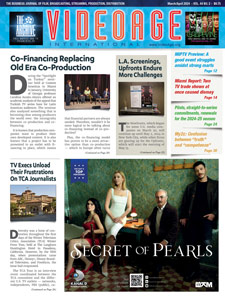By Dom Serafini
The legal, social and moral problems of 79-year-old American comedian Bill Cosby (who now could face up to 10 years in prison for sexual abuse) are well known. What’s not known is the financial cost, not only to Cosby himself, but also to the more than 700 people associated with his commercial products.
During his career, which began 54 years ago as a stand-up comic, Cosby has sold 21 albums of his monologues, 15 music albums, nine albums of mixed music and comedy and four singles.
He has also published 12 books, starred in 10 TV movies and has had leading roles in 10 TV series amounting to a total of 756 episodes. He has 10 additional credits ranging from writer (22 credits) to director (three credits) and appeared in many shorts and lent his voice to specials.
Considering his various sponsorships (such as Coca Cola), Cosby’s financial assets have been estimated at $400 million. However, for many of the people who contributed to his fortune, the financial outlook is far less promising.
The remuneration system of the American entertainment industry is based on the “residuals” model for domestic and “foreign rights” for international exploitation for the three key Guilds: Actors Guild (SAG-AFTRA), Directors Guild (DGA) and Writers Guild (WGA). Under the DGA, in addition to the director, there are five more residuals holders, such as unit production manager and associate director.
This explanation is given in order to realize the large number of people involved in the production of Bill Cosby body of works.
For a main SAG-AFTRA character, the residuals are on a sliding scale. For example: same amount of the original fee for a network repeat, then 40 percent of the original fee for the first off-net run (basic cable or FTA). For the second off-net re-run, the residual is reduced to 30 percent of the original fee. The scale slide down until the 13th times it airs. From then on, a leading actor gets five percent of the original fee for each episode that airs, in perpetuity. And these residuals do not include other exploitation windows and foreign sales.
Ultimately, many people’s financial futures are involved in the production of a movie, television show, record or book, and many depend on the monthly residual payments, which is like an annuity to the families.
When these residuals fail to materialize do to image, moral or legal problems caused by the programs’ main characters (Cosby was accused of sexual abuse by over 50 women), financial losses not only affect the leading actors, but also the families who depend on revenue from the programs’ future domestic and foreign sales.
Considering that since 1965 (when Cosby starred in the series I Spy, aired in the U.S. on the NBC TV network), over 700 “above the line” people entitled to residuals, are estimated to have been involved in Cosby’s various productions, we can assume that about $20 million in annual residual losses were caused by unsold Cosby products. And this is without considering the losses to domestic and international content distributors, generating losses in commissions estimated at $6 million a year.
Let’s not forget that the 202-episode sitcom The Cosby Show (1984-1992), which broke all domestic syndication re-run records. It had the highest TV “Ultimate” of any TV series at that time (estimated at $1 billion) and now it has been pulled from all TV channels.
So in this particular falling star story, people associated with Cosby’s products are also victims of his actions, and by pulling the shows off the air, the TV stations are affecting hundreds of families. A better solution might have been to assign Cosby’s share of residuals to all his victims.
And the moral of this sad story is that, before a super star in the universe of entertainment goes looking for trouble, instead of calling a lawyer, it’s better to consult first with spiritual and moral gurus.












All of the universities and colleges that took back all of the honors they bestowed to Cosby, did they return all of the money that he donated to them, JUST ASKING
Excellent point. But While I’m sure some of Cosby’s commitment to colleges was sincere, it was also golden PR for him. And he played it well. Racking up all those honorary degrees was key in allowing him to rape women under the cloak of charity. This personae made him millions.
Right, Williams it would be the morally correct thing to do, but you know that didn’t happen
Shirl, Using the words morally correct in association with a man who drugged and raped woman for decades is insulting. He used his power and fame to assault and intimidate woman. He got off light and in no way deserves to get his money back for his honorary degrees. The only way he could get a degree was to pay for one. In addition of being stripped of them he should be stripped off his freedom for a lot longer than he was sentenced.